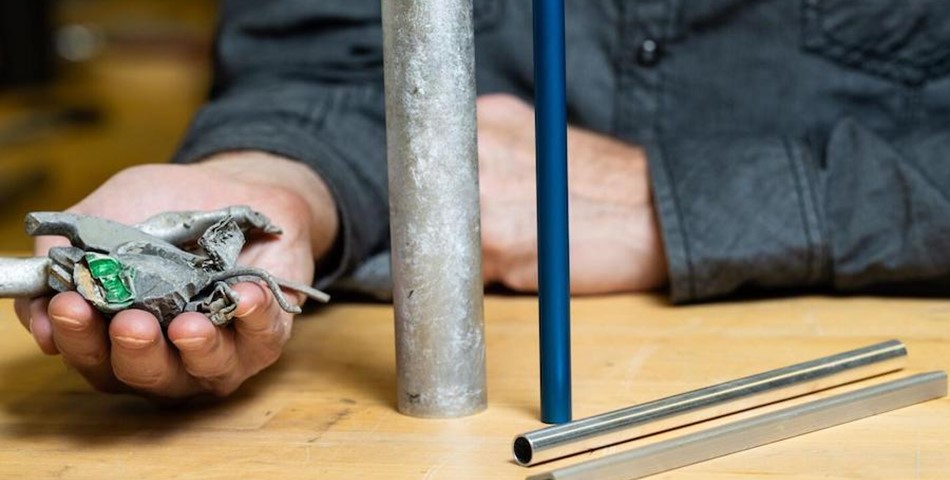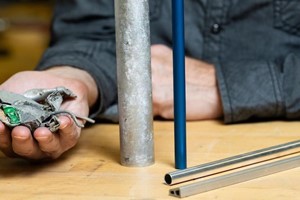A groundbreaking patent-pending technology developed at the Pacific Northwest National Laboratory (PNNL) could revolutionize the use of scrap aluminum in building structures. The Shear Assisted Processing and Extrusion Process (ShAPE) has shown remarkable potential in transforming various scrap materials, including twisted aluminum mesh and banged-up bicycle frames, into high-quality extrusions that meet or surpass ASTM standards for strength and flexibility.
This innovative process not only offers a sustainable solution for repurposing aluminum scrap but also reduces dependency on imported primary aluminum. Moreover, rigorous laboratory testing has demonstrated that ShAPE conserves nearly all the energy required for manufacturing new aluminum products, thus contributing to environmental sustainability.
Lead researcher Scott Whalen emphasized the significance of ShAPE in decarbonizing the built environment, especially since a significant portion of the global aluminum extrusion market serves the building and construction industry. The technology's ability to produce low-carbon extruded parts from 100% post-consumer scrap presents a compelling opportunity for reducing the carbon footprint of building materials.
Recognizing the immense potential of ShAPE, entrepreneur Eric Donsky has established Atomic13, a start-up focused on scaling the technology for commercial use. By forming an exclusive agreement with PNNL, Atomic13 aims to leverage ShAPE to manufacture custom-extruded aluminum parts for various industries, starting with building and construction.
What sets ShAPE apart is its ability to deform scrap aluminum using high shear forces and heat to pulverize impurities, such as iron clumps, and disperse them uniformly within the aluminum microstructure. This dispersion process eliminates the need to dilute impurities with newly mined aluminum before processing, resulting in significant energy savings.
The PNNL team conducted comprehensive mechanical testing on a range of ShAPE-produced products, including rods, tubes, and irregular hollow shapes, all manufactured from post-consumer scrap briquettes. Despite variations in iron content, these products consistently met or exceeded ASTM standards for strength and durability.














